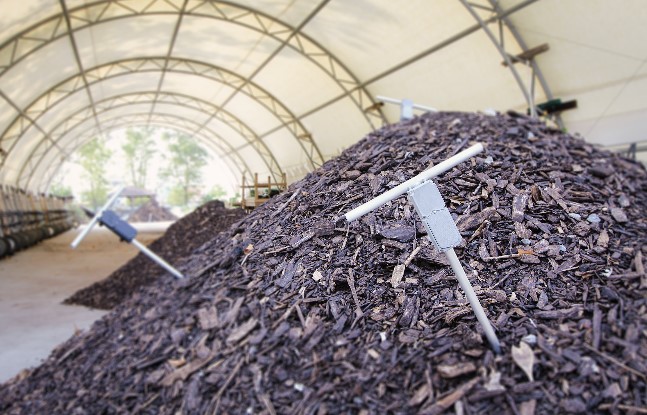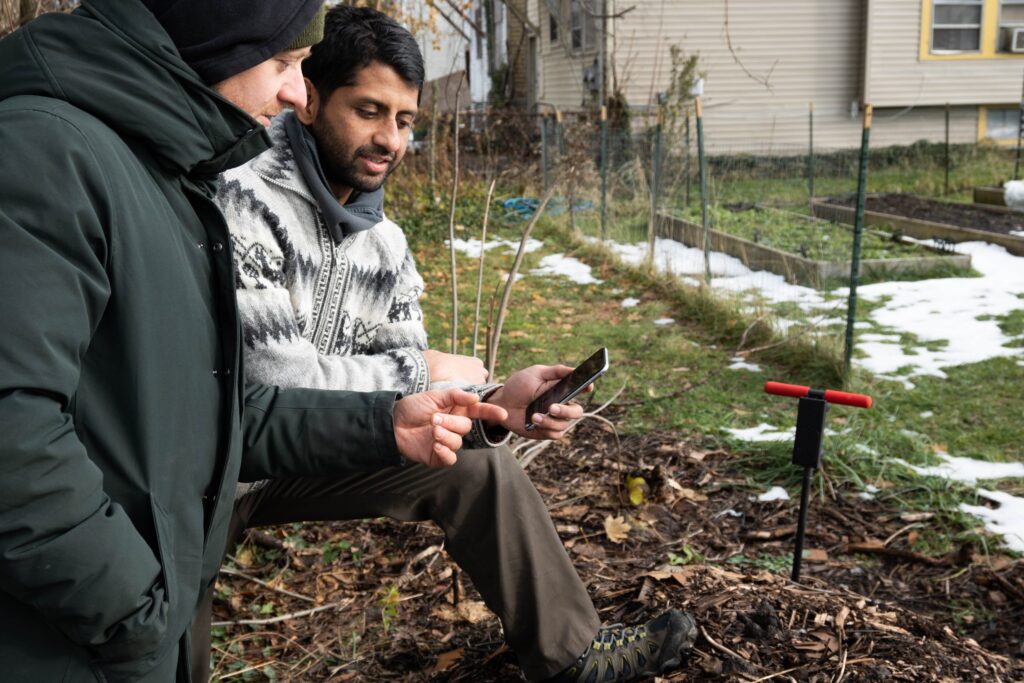Using Data to Improve Composting
Most of the food that people eat comes from soil. However, the excessive use of chemical fertilizers and non-regenerative agricultural practices have stripped soil of valuable nutrients. For Sashti Balasundaram, the founder and CEO of WeRadiate, the solution involves a systematic, data-driven approach to improving soil nutrient levels through composting. Go Natural Education interviewed Sashti (shown at right, below) and presents the highlights of our conversation.
Q: Please tell us about yourself. How did you become interested in soil?
My background is in public health, specifically environmental health. I became interested in soil after learning that 95% of the food that we eat comes from it. The nutrients that we’re putting into our bodies comes from the soil, and soil has connections with so many things, such as health and economics. And my father was a farmer. He had a small chicken farm. WeRadiate would love to support farmers around the world because soil degradation is not unique to any country, state or region.
Q: How does soil become degraded, and why is that a problem?
Some experts predict that we have 50 years left to grow food on arable land. There’s research that the nutrient levels in our food have fallen sharply. You’ve probably heard the saying, “An apple a day keeps the doctor away”. That might have been true at one time, but we’ve lost so much from the soil that we now need to eat almost five apples a day to get the same nutrient levels as before.
This can be due to many things, including excessive fertilizer use, pesticide use, compaction of the soil, and monocropping. As a company, WeRadiate is trying to figure out how to put nutrients back into the soil. That’s what we do on both the technology end and the services end.
Q: Let’s talk about composting. It’s simple enough. What’s so challenging about it that someone would want a technology-driven solution?
If I do it in my backyard, that’s wonderful. But now let’s think about scaling it up. That’s why we work with larger-scale facilities where there are multiple people processing tons of compostable material. Whether it’s manure, food scraps, horticultural debris – you name it – correct and efficient composting is a science.
That science is simple. It’s about water, air, and getting the right ratio of carbon and nitrogen. But if you do it incorrectly, that’s where issues can arise. For example, odor and smells can shut down facilities due to complaints. There are issues with rodents. There are also issues with pathogens and pests, so temperature monitoring is something we do.
That’s important because we want to minimize e. Coli and salmonella in composting, both of which cause issues with health. There are also standards to consider. We want to create the highest quality standards not only for growing food, but for farms that want organic certification. That’s what we do – improve operations through technology.

Q: Please tell us more about the technology that you’ve developed. What are the components, how does it work, and does it require specialized training?
Our business model involves hardware and software as a service, or SAS. We have sensors that are in the field tracking important variables. It’s important to collect that data for reporting, so that’s the software/hardware angle.
We’re now doing something called design for sustainability, or DFS. We’re in a sector called “waste” but we don’t want to create products that are wasteful. So, we are making sure we can refurbish, recycle, or repair almost 100% of our build materials.
Our clients don’t want to have old equipment. So, we can pull it, repair it, and maybe give it to a community organization. In terms of training, we provide instruction at different levels. We go on-site to train the compost operators.
Q: Who’s used your technology so far?
We work mainly with farms and farmers, but also with government agencies. We have clients in eight states, including the town of Bethlehem, New York. They collect food scraps and horticultural materials.
There’s also a big name you would know: PepsiCo. It’s a public company, and they’re using our equipment and platform for research on compostable packaging.
There are also farms that want to create their own soil amendments or compost for feeding back into growing food. We’re also in Manhattan Hudson River Park, a state park that’s on the West side of Manhattan. They have a compost operator that collects 5,000 lbs. of material every single week.
Q: Before we go, is there anything else you’d like to add?
We have a tagline at WeRadiate that explains a lot. Healthy soil creates healthy food, strong communities, and sustainable cities. Together, we radiate.
